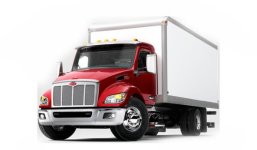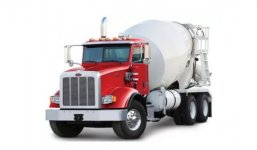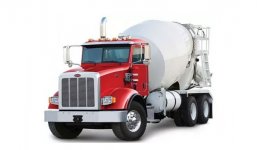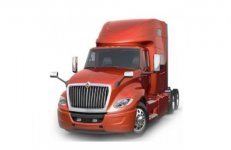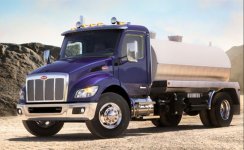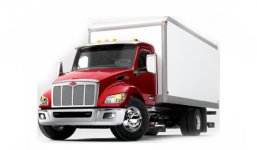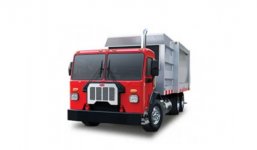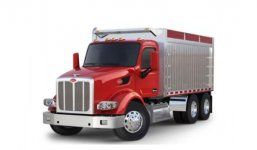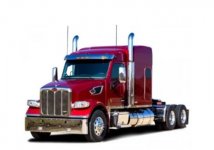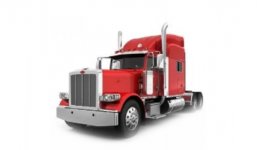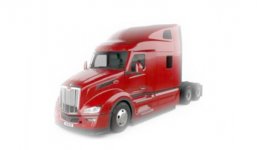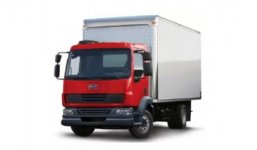Peterbilt has supplied the North American commercial vehicle market with the industry’s most rugged, reliable and efficient products.Based in Denton, Texas, Peterbilt manufactures on highway, vocational and medium dutyA trucks that provide value to their owners and pride to their drivers. These vehicles are supported through industry-leading aftermarket programs and a dedicated network of independent dealerships.Peterbilt takes pride in its rich heritage and traditions, as well as these four enduring values that have shaped and continue to define the meaning of Peterbilt:
Purposeful Innovation – Provide technologically advanced products and services that deliver outstanding performance and value.Individualized Solutions – Customize every Peterbilt product to meet the unique business needs of the customer, and support the customer with aftersales programs and services tailored to them.
Enduring Craftsmanship – Manufacture the industry’s most durable and reliable trucks, assembled to the highest quality standards by the industry’s proudest employees.Pride & Class – Maintain a passion for unrivaled performance, forged out of the heritage of the iconic brand and focused on inspired styling and a premium driver experience.
At home in the city streets, the loading dock or the job site, Peterbilt is the adaptable choice that delivers economic performance day in, day out.Reliable and rugged, each vocational truck reflects an enduring commitment to hard work in tough environments.At home in the city streets, the loading dock or the job site, Peterbilt is the adaptable choice that delivers economic performance day in, day out.
Peterbilt Motors Company is an American truck manufacturer. Established in 1939 from the acquisition of Fageol Truck and Motor Company, Peterbilt specializes in the production of heavy-duty (Class 8) and medium-duty (Class 5–7) commercial vehicles. The namesake of company founder T.A. "Al" Peterman, Peterbilt has operated as part of PACCAR since 1958, operating alongside sister division Kenworth Truck Company (though serving as one of the longest-running marketplace rivalries in American truck manufacturing).
Peterbilt trucks are identified by a large red-oval brand emblem, in use since 1953.The company also uses a "bird"-style hood ornament on conventional-cab trucks, in use since 1965 .Headquartered in Denton, Texas, the company also manufactures trucks at PACCAR facilities in Sainte-Thérèse, Quebec, Canada and Mexicali, Mexico.
After a 22-year model run, the 281/351 was retired for 1976. Replaced by the 358 and 359 as the Peterbilt highway tractor over a decade earlier, the 351 had continued production as a heavy-duty truck built primarily for vocational use; in the early 1970s, its cycle-style fenders were replaced by flat steel fenders. The narrow-hood 358 was also retired, as the larger-grille 359 was better suited to the cooling needs of newer diesel engines.
Peterbilt assembled its 100,000th vehicle, a long-hood Model 359. The model line underwent minor revisions, as the cab received a revised dashboard and an optional 63-inch sleeper cab with walk-through entry (a first for the model line).For 1978, the CB300 was replaced by the Model 310. Again shared with Kenworth, the 310 was a new generation of the low-cab COE model line.Peterbilt began to revise its model nomenclature, phasing out separate designations for single rear-axle trucks; all trucks began to use model numbers starting with "3" (regardless of drive configuration).
the Fageol plant in Oakland opened for business as Peterbilt Motors Company. As part of the design process, Peterman and his company engineers sought input from truck owners and drivers on how to develop trucks. initially planning to develop chain-drive trucks for the logging industry, the company transitioned towards vehicles intended towards highway freight transport.[10] In April 1939, Peterbilt released its first vehicles for public sale, the single-axle Model 260 (chain drive) and the tandem-axle Model 334 (shaft-drive); both vehicles were offered with either gasoline or diesel engines.The 260 and 334 were equipped with an all-steel cab, trimmed with plywood sourced from Peterman-owned lumber mills.In a tradition that would last for the next 40 years, the company would designate single rear-axle trucks with model numbers starting with 2; tandem rear-axle trucks started with 3.
On this page, CCarPrice in providing best Peterbilt Truck Prices in Canada by 2025.
Hide ▲
